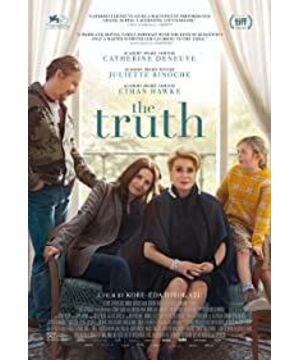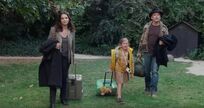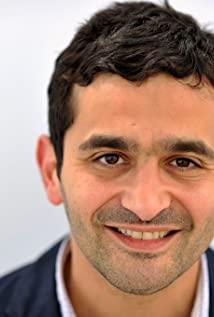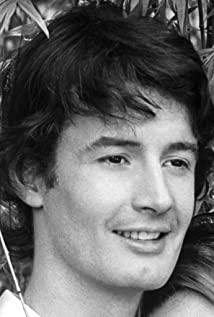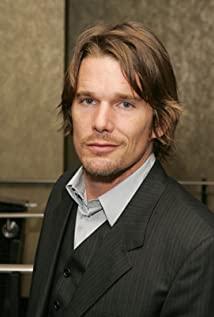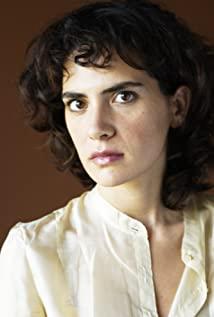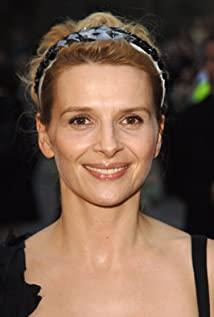Text/Edited by Tubai/Laughing
The French film "Truth" directed by Hirokazu Kee premiered at the Venice Film Festival as the opening film. After "The Thief Family" won the Cannes Palme d'Or, his new work is naturally highly anticipated, and there is no lack of doubts. After all, Asian directors have always had the problem of "unacceptable" when making foreign language films.
After the premiere, the audience agreed that this French film was at least a work of medium quality. Two generations of French literary goddesses, Catherine Deneuve and Juliet Binoche, performed a pair of mother and daughter. The portrayal of the relationship between the mother and the daughter and the characterization of the mother were successful. The daily trivial conversations and quarrels between family members, mutual misunderstandings and the re-excavation of the truth, these humanistic depictions of daily life are still the delicate texture of Zhi Yuhe.
The book reporter's rating of "The Truth" after watching the film in Venice: Laughing ★★★★☆I was touched by the scene of the reconciliation of the mother and daughter with the mother and daughter in several scenes. The acting skills of the two generations of literary goddesses are really great! It is the family film that Hirokazu is good at, and the French warmth literary film is almost without trace, and it can be seen very high. It is Zhi Yu's image style, which is also highly consistent. Deeply analyzing his past works, we will find that the core part of them is not limited to a certain culture or subject matter. The complexity of life and death, human nature, emotions, and relationships are all presented from Shige Hirohe's unique perspective.
Watching Hirokazu Edema’s movies, I can always feel a sense of "distance" consciously or unconsciously. This sense of distance is sometimes due to the mid-to-long-range use of the film, and sometimes it is trying to avoid the emotional catharsis of the close-up of the characters, and sometimes it is The sense of distance between people, people and things, people and space, time or truth in the film. This is an extremely conscious and deliberate "sense of distance", which avoids the bias that may be caused by excessive eager gaze, and allows the audience to stand in the right position, but it is not too alien to be violated, and it happens to be a Calm and empathetic spectator.
This sense of distance is exactly the virtue of director restraint. It was Zhi Yuka who understood that the real power was not the tears, but the tears that had to be held back after desperate efforts.
The DNA of "TV"
His television background has made Shige Hiro and his inferiority complex for a long time. Therefore, his film debut "Phantom Light" appeared to be particularly cautious. It was Zhi Yuhe who specially asked Director Hou Xiaoxian to introduce the soundtrack of "Love in the Wind", Chen Mingzhang, and meticulously filmed according to the 300 shots he drew. But this debut work, which was even regarded as a "failure" by Hirokazu, let Director Hou explain the crux of the matter: "Where the camera should be placed, shouldn't it be decided after watching the performance of the actors on the spot?"
In 1987, Hirokazu Edema, who had originally dreamed of becoming a novelist, graduated from Waseda University's First Faculty of Literature and Art. After that, he joined the television industry and made a television documentary at TV MAN UNION. Looking back, it is not difficult to find that these documentaries are inextricably linked to his future feature films. The widow of an official in "Yet...The Time When Welfare Disappears" and Yumiko in "Phantom Light" are like the outside; the proposition about memory in "When Memory Is Lost" is reborn in "Next Station, Heaven"; filming " Another kind of education ~ Records of the Spring Class of Ina Elementary School" also found the answers in "Nobody Knows"... More importantly, the filming of "Hou Xiaoxian and Yang Dechang" made him get acquainted with Hou who is also a teacher and friend. guide.
In his second work "The Next Stop, Heaven", it was Hirokazu that almost eliminated the boundary between documentary and feature films. They took to the streets with the question "please review your own life and choose the most precious memory from it", interviewed more than 600 people randomly, and selected interesting subjects from them. These selected amateurs were in the same position as professional actors. Alternately appearing in the film, the real and the fiction merge with each other.
In fact, whether it is a record or a fiction, it is an attempt to reach a certain way of reality. So to this day, it is Hirokazu Ke that has not given up on the shooting of documentaries. He even thinks that he is not a film creator, but just a TV writer. As a "television kid" who was fed and raised by television, the screenwriters Yamada Taiichi and Mukota Kuniko were the ones who influenced him most. In the creative process of Shiede Hirokazu, he also gradually accepted his own TV DNA imprinted in his body. It may be that he made movies with the pedigree of TV that made him unique.
The missing "paternity"
In Shiede Hirokazu’s film, the absence of his father is obvious, either death or being excluded from the family. This is a reflection of his own indifferent father-son relationship, which is directly expressed in the "Abe Hiroshi Trilogy"— -"Non-stop", "Deeper than the Sea" and the Japanese drama "Going My Home", the reason why these three works are classified as a trilogy is not only because many of the protagonists are played by Hiroshi Abe, but also because of these three This work is the most "private" and "willful".
They are private because they have too many personal memories of Hirokazu Ke. The Tuandi residence in "Deeper than the Sea" restores his life from the age of 9 to 28. The scrolls and the typhoon are all about his father. "Non-stop" is a healing work that misses my mother, "going my home" is more like a journey of return and reconciliation, with memories, and with father.
In Shiede Hirokazu’s early work "Distance", the lack of paternity became a kind of death of the times, an era lacking patriarchal existence. This kind of lack is the source of the tragedy of Aum Shinrikyo, the leader of Shoko Asahara. A certain kind of father attracts many believers, and believers who are attracted by this "fatherhood" become "family."
But with the death of his father and the birth of his daughter, it was Hirohi Kee and his own identity that changed from "son" to "father". This conversion allowed him to explore what is a father in his works. Two dads appear in "The Son" at the same time, mirroring each other. A "useless" dad and a "capable" dad, there is no standard answer to who wins or loses.
When talking about her father, the eldest sister Xing Xing said that there were subtle changes in the first and last two expressions. At the beginning, she described her father as "very gentle, but very useless". At the end, she said "Although it is very useless, but human Very gentle", this kind of change reflects the growth of Xing in the film, but outside the film, is it also the gentle change in the attitude of Hirokazu Kee to his father?
The opposite of the "useless" father role is the "powerful" mother role. Shu Xilin became the second mother of Shie Hirokazu through the movie, which also allowed him to make up for the regret of not having time to get along with his mother and bid farewell. When the mother left, she hadn't had time to see "Nobody Knows" that made her son famous. She was still worried about her son's job and prospects, but Hirokazu Kee was busy filming "Flower Warrior", "The Son of Nothing". Was caught off guard by death.
Those shortcomings in life are made up by Hirokazu Edema with movies.
The "grey" world is that Hirokazu Kee's movies rarely have distinct good and evil, and they are often ambiguous gray. The director is not a god or a judge, and it is not his job to judge, but to present. Is the mother in "Nobody Knows" really sinful? Are the prisoners of Shinrikyo in "Distance" really brutal? Are the suspects in "Third Degree Suspects" really murderous ghosts? Is the family in "The Thief Family" really shameless criminals?
It was Hirokazu Kee who was never obsessed with clear answers, and he was more interested in the possibilities beyond what was said. It was Hirokazu Eede who saw in the newspaper the report of the "Nishisuga Four Abandoned Children", the prototype of "Nobody Knows". The media either lashed out at the mother or sympathized with the child, but the director's inner question was: "Their Is there some kind of abundance in life that is different from material abundance?"
The insensitivity to black and white respects, and the respect for the opposition of good and evil, gives Shiede Hirokazu's films a more long-lasting taste. These works taken from real social crime incidents still show a gray world. This is probably due to the director's certain consciousness: "The so-called crime is not just the personal problem of the perpetrator. Crime is like the society in which we live has begun to fester, so it is absolutely impossible to have nothing to do with us."
Yoshie Hirokazu said: "I always hope that when people who watch movies return to their daily lives, they will have a change in their views of daily life." He hopes that his movies will "become people changing their way of looking at daily life in a critical light." Opportunities for life". In his opinion, there are only two kinds of people who can criticize the "us" in this world-the dead and the children. "It is the deceased who criticizes us on the outside of the story, and the children who criticize us on the inside." So in his movie, The dead and children are always present.
In Hirokazu's movies, mature children and unused adults also form a set of interesting contrasts.
Everyday "deconstruction" Many people think that the subject matter that Hirokazu is best at is family. In fact, he has not stopped deconstructing the concept of "family". How is the family formed? Is it blood? Is it the law? Is the time wasted in the same space? Or is it some kind of shared memory? In "Father Like Son", he directly throws out this multiple-choice question: blood relationship or time? Around the 40th year of the Showa era (1965), there were many incidents of miscarrying babies across Japan. According to documentary records, almost all families chose "blood relations", except for two families in Okinawa. So the film is aimed at this tiny "exception".
The emphasis on time can be intuitively felt in many of Shiede Hiroka's films. For example, in a detail in "Deeper than the Sea", the mother opened the refrigerator door behind her sister, and the sister subconsciously leaned forward, leaving her mother enough to open the refrigerator door. This is a long-term life in the same space. People's memories imprinted in the body. For example, in "Haijie Diary", the four sisters returned to the old house with their mother and aunt after the 7th anniversary ceremony. Everyone habitually walked to their usual positions, but the mother and Xing almost ran into it. It is clear at a glance what a "family" is. .
In addition to blood relationship and time, the people in "Distance" become family members because of their "belief", while in "The Thief Family" it is "crime".
It was Hirokazu Kee who deconstructed Bushido in "Warrior of Flowers" and told a revenge story that gave up revenge. Its original intention was inseparable from 9/11. After the terrorist attack, the dualism of good and evil made him uneasy. Although "Air Puppet" is a story about emptiness, it tells a certain kind of abundance-"Life, its own deficiency, is fulfilled through others." "Miracle" is about the reconfirmation that miracles will never happen. "The Third Degree Suspect" is the unknowable truth.
In the final analysis, it is Hirokazu Kee who is really interested in describing "the people left behind", presenting "meaningless but rich life", exploring some possibilities beyond the established, and the sudden change of this dirty world. It's a good moment. Probably it is this kind of gentleness that looks at weakness that makes us always willing to stop and be a quiet bystander in the life of Feiying Gougou.
View more about The Truth reviews


